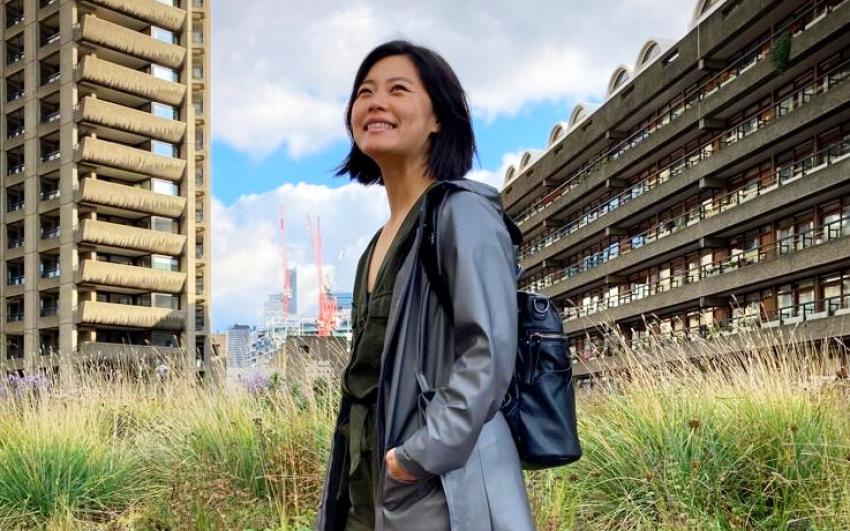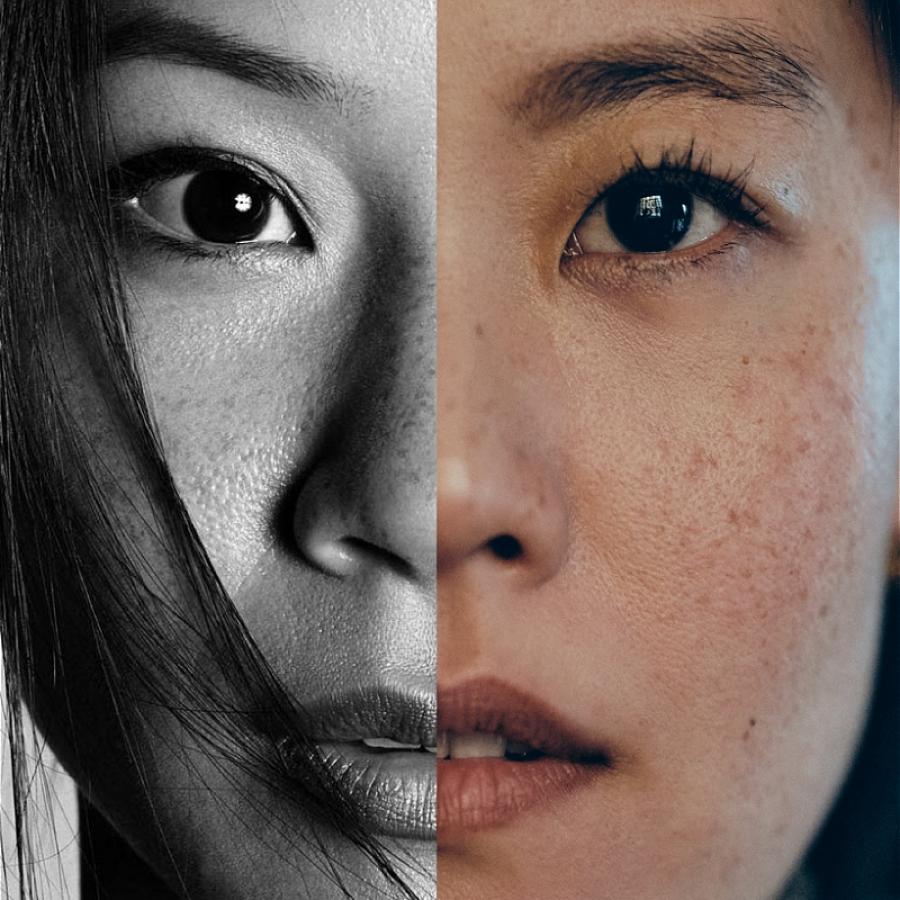I'm Sorry I'm Not Lucy Liu is a show where you can choose your own adventure through time with ‘Eden’, on her quest to become a superstar after her idol and nemesis Lucy Liu. Eden Jun, the writer and performer, goes back in time to a neurodivergent kid between two seemingly disparate cultures, and learns lessons on self-advocacy.
In my last blog for CPT, I talked about the grain of my brain directing me to the form of my show. Perhaps having Eden in the show revisit her past runs nicely parallel to my desire to understand my neurodivergent history. It would be better to travel back in time for real, but for now, I’ll rely on my subjective recall (all recall is subjective, of course).
My brain’s been described as scattered, quirky, obsessive, overstimulated, random, and inefficient, among others, which don’t register as particularly useful traits in the cultures that raised me: Korean and British.
In primary school, I was prescribed Kumon, a monthly binder of maths drills you sent off to a tutor to be marked. They hurt like real drills going into my temples. In desperation, I started flushing the odd page down the toilet, then more and more pages, until my mum noticed the binder looking considerably thinner and realised Kumon wasn’t the one ripping her off. A right rollicking followed. Was I not cut out to be a cutout Korean kid? I had no idea that my poor impulse control was a symptom of ADHD, and the mathematical persecution (mathsecution?) was from dyscalculia.
In Years 7-9 I ‘masked’ my symptoms and behaved well in public, but I struggled with formal assessments, like exams, that made any knowledge of different learning styles redundant. It got worse at GCSE and A-level, which, instead of making me quit, made me determined to prove that I could do a university degree. I will spare you the sight of my battle scars (and bank balance). After 8 years of Korean schooling and 10+ years in the British education system, and learning from the much-missed Sir Ken Robinson, I am a credible case study of how the ‘factory model’ has harmed neurodivergent folk.
In Korean culture, not yet fully embracing of individual expression, anyone who does not exhibit academic excellence and tattoo-and-piercing-free appearance risks being discriminated against. While there’s more research on conditions like ADHD, the cultural stigma surrounding neurodivergence is leading many parents to see it as something to be diagnosed and fixed. My experience of the attitudes in the UK towards neurodivergence is not rosy by any means, especially due to my intersectionality, but we seem to be having more nuanced conversations around education and intersectionality. It helps me to see neurodivergence as a spectrum all of us are on rather than the opposite of ‘neurotypical’. If that’s the case, how do you advocate for yourself? Here’s what I’m learning.
First, look for expressions of neurodivergence that resonate with you, to connect with your own creative needs, similar to the concept of stealing like an artist. Did someone write, paint, move, play, say, or chant something that you felt encapsulated what it feels to be in your mind, body, and spirit? What about it did it for you? The medium? The form? The context? Collect ideas, then experiment with ways of self-expression that make you feel good that serves your needs, not what you think should (empathy can confuse signals). I discovered ice skating and bouldering to serve the need I have to meditate in motion. Pay attention to what brings you joy, and you’ll know what to protect.
Second, find creative spaces where you feel at home based on what you enjoy. ‘Home’ does not have to imply ‘family’, but can be a professional or social setting with good boundaries. It might be a dance company, a martial arts team, or a sewing group. For me, it’s Camden People’s Theatre and my collaborators and mentors; and friends who are supporting me and the show. I feel at home at New Earth Theatre among the alumni, and at home with Kakilang friends – both theatres champion BESEA talent, and continue to cheer me on. The theatre community feels like a big home. Each theatre, collaborator, and mentor has encouraged and trusted me to make work that feels like a brainchild of mine, and helped me embrace and expand my process via theirs. Self-advocacy is easier when you feel accepted and heard in a space, where you can practise asking for what you need while being gently guided when you need encouragement.
Third, collect what you discover from your personal play, and share it with your creative partners and teams. Collect your findings for yourself in a way that you enjoy, which might be in a journal or voice notes or something else. I have journals that contain my musings and doodles, and I keep a picnic hamper full of materials I am collecting as I go. Writing a blog post turns out to be a good way to condense and connect a lot of experience, as I am here. As you share your process with your collaborators or coworkers, you might all agree to advocate for everyone’s needs. Self-advocacy is easier for the individual when it’s part of the shared practice. Access Riders can be useful here. You can start small, and there are templates and guides you can draw from (visit Unlimited, and see Alexandrina Hemsley's template and Vijay Patel's template). Mine’s currently a one-pager.
Communicating your needs is easier if you first know what they are, meet them for yourself with support from a creative home, then share them with your collaborators. I hope to hear from you about your discoveries.
PS: Arts Council England (ACE) applications can be daunting with access needs. ACE has a team dedicated to providing Access Support. Working with my heroic support worker Beth is the only reason I was able to get funding. Asking for help is self-advocacy.
Tue 20 - Thu 22 Jun at 7.15pm
Tickets £8 (work-in-progress)

